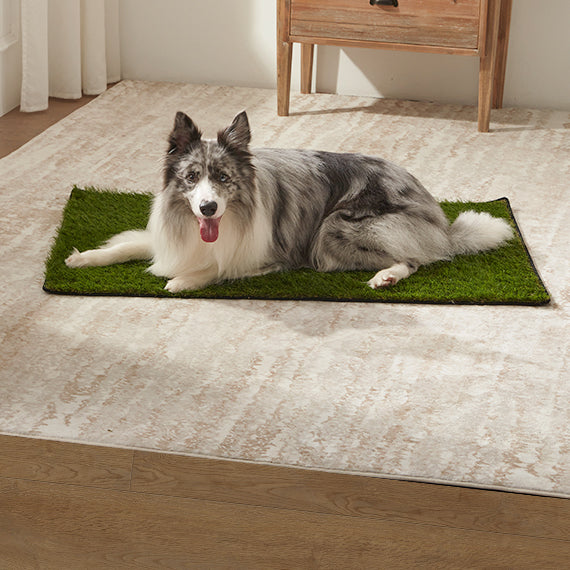Unlocking the Secrets of Feline Longevity: How Long Do Cats Really Live?
Cats, with their mysterious and independent nature, become cherished members of our families. As responsible pet owners, understanding the factors that contribute to a cat's lifespan is crucial. Join us in unraveling the secrets of feline longevity and discover how you can ensure your beloved feline friend lives a healthy and happy life.
1. Siamese Cat:
- Indoor Lifespan: Siamese cats kept indoors typically live around 12 to 16 years. Their social nature thrives in a controlled and loving home environment.
- Outdoor Lifespan: Outdoor Siamese cats may have a shorter lifespan of around 10 to 12 years due to increased exposure to potential risks.
2. Persian Cat:
- Indoor Lifespan: Persian cats, with their luxurious coats, often live between 12 to 18 years when kept indoors. Regular grooming and a calm indoor environment contribute to their longevity.
- Outdoor Lifespan: Persian cats are more susceptible to outdoor hazards, and their lifespan may decrease to an average of 10 to 12 years when living outdoors.
3. Maine Coon:
- Indoor Lifespan: The majestic Maine Coon, when kept indoors, can enjoy a lifespan of 12 to 15 years. Their large size and hearty constitution contribute to their relatively long life expectancy.
- Outdoor Lifespan: Outdoor Maine Coons may face risks that reduce their lifespan to an average of 10 to 13 years.
4. Bengal Cat:
- Indoor Lifespan: Bengal cats, known for their playful nature, can live around 12 to 16 years when kept indoors. Regular play and mental stimulation contribute to their well-being.
- Outdoor Lifespan: Bengals exploring the outdoors may face various risks, potentially reducing their lifespan to an average of 10 to 14 years.
5. Ragdoll Cat:
- *Indoor Lifespan:* Ragdolls, with their docile nature, can thrive indoors and live around 12 to 17 years. Their calm demeanor contributes to a longer life in a stable environment.
- *Outdoor Lifespan:* Ragdolls living outdoors may face more hazards, potentially shortening their lifespan to an average of 10 to 14 years.
6. Abyssinian Cat:
- Indoor Lifespan: Abyssinians, known for their active and playful behavior, may live around 12 to 16 years indoors. Their energy levels are well-suited for an enriched indoor environment.
- Outdoor Lifespan: Outdoor Abyssinians may face increased risks, potentially reducing their lifespan to an average of 10 to 14 years.
Remember, individual lifespans can vary based on genetics, healthcare, and overall well-being. Providing a loving and safe environment, regular veterinary care, and proper nutrition contribute significantly to a cat's longevity.
1. Breed-Specific Longevity:
- Different cat breeds exhibit varying lifespans. Some breeds are known for their longevity, while others may have specific health considerations that impact their lifespan.
2. Diet and Nutrition:
- A balanced and nutritious diet plays a pivotal role in a cat's overall health. Learn about the dietary needs of your cat and provide appropriate nutrition to promote longevity.
3. Regular Veterinary Care:
- Routine veterinary check-ups are essential for preventive healthcare. Regular vaccinations, dental care, and early detection of health issues can significantly contribute to a cat's longevity.
4. Indoor vs. Outdoor Living:
- Outdoor cats face more risks, including accidents, predators, and exposure to diseases. Indoor cats generally have a longer lifespan due to reduced risks and a more controlled environment.
5. Spaying/Neutering:
- The decision to spay or neuter your cat can impact their lifespan. Sterilized cats often have fewer health issues and are less prone to certain reproductive-related diseases.
Average Cat Lifespan:
- On average, indoor cats tend to live longer than outdoor cats. Indoor cats can live anywhere from 12 to 20 years, with some reaching even older ages. Outdoor cats typically have a shorter lifespan, averaging around 7 to 10 years.
Promoting Longevity and Well-Being:
- Beyond understanding average lifespans, focus on creating a nurturing environment. Provide a balanced diet, engage in regular play and mental stimulation, and maintain a loving and stress-free atmosphere to ensure your cat thrives.
Conclusion:
Understanding the factors that influence a cat's lifespan empowers pet owners to make informed decisions for their furry companions. By prioritizing health, nutrition, and overall well-being, you can contribute to ensuring your cat lives a long, happy, and fulfilling life. Stay informed, stay proactive, and cherish every moment with your beloved feline friend. 🐾💖 #CatLifespan #FelineWellness #PetCareTips
